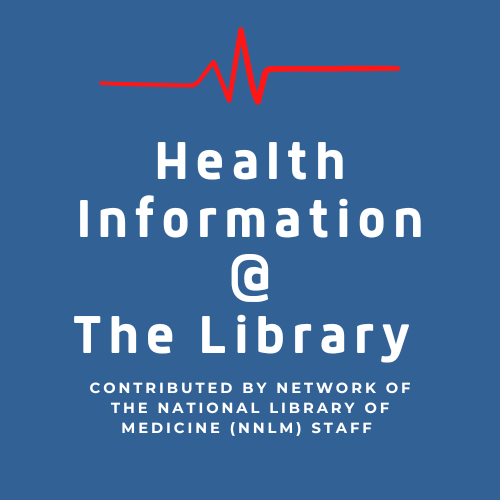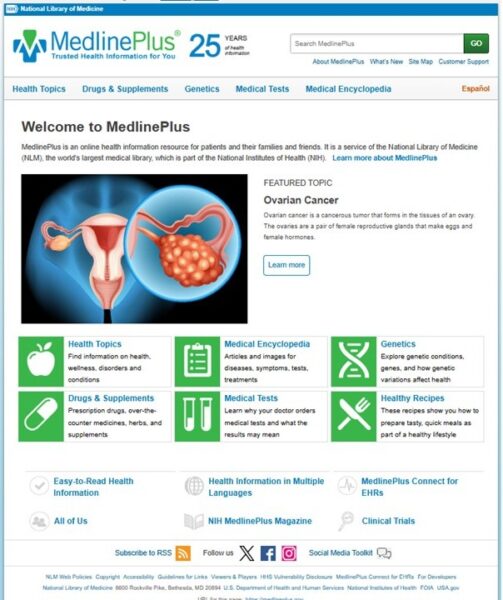Try These Tools for Helping Older Adults with Health Questions

Census estimates show that the population of those age 65 and over will climb by 22 percent over the next decade, then grow at slower rates for the rest of the century. That means needs of older adults should be a key part of your library services now and in the near future. Health information – both physical and mental – is an important part of those needs, although not the only one.
“Probably the largest information request we receive is for help with technology, from basic use of devices … to more specific requests, such as printing off medical records that are now almost exclusively in medical portals,” said Emily Wicks, the director of the Chouteau County Public Library, which serves a county of about 5,900 residents in rural Montana. “The next highest would be for books about medical diagnoses, specific health information, and/or dietary information.”
So when you get that health reference question from an older adult, what resources are out there that provide reliable and relevant information?
Before answering the question, let me say I am defining reliable as “evidence-based.” The Cambridge Dictionary defines that term as “supported by a large amount of scientific research.” However, all but the most motivated and perseverant public library patrons lack the time to sort through journal articles and determine what information is backed by rigorous clinical trials or expert opinion. Furthermore, they may lack the high-level health literacy skills needed to use the material effectively. The typical patron needs health information that is accessible, easily understandable and credible.
Where to Look
The National Library of Medicine and other agencies within the National Institutes of Health can help you help your patron with free resources that include evidence-based information for all ages, including older adults.
MedlinePlus is designed specifically for patients (and the very important audience of caregivers). It offers readable, free information from the

Screenshot of MedlinePlus home page, April 2025. The free website includes a section on older adults for patients, their caregivers and the general public.
world’s largest medical library. Available in both English and Spanish, it is easily searchable. Its topic headings include all the major body systems, disorders and conditions, diagnoses and therapies, demographic groups, and health and wellness issues. Older adults may be interested in the section of the website specifically aimed at their needs. They can find answers to their medication questions under Drugs, Herbs and Supplements. Information on 300 types of medical tests is also available. Most of the articles in MedlinePlus are written on a 5th to 8th grade level. If your patron reads on a lower level, there is a limited number of resources in the Easy-to-Read Health Information section or the Health Information in Multiple Languages section for those who read languages other than English or Spanish. For readers of online periodicals, MedlinePlus Magazine offers health-related tips, reports on research, and interviews with interesting personalities who have unique personal experiences with health. The April edition included an article on TV host Maria Menounos and her story of undergoing treatment for pancreatic cancer.
Another National Library of Medicine resource is Daily Med. The database reproduces the information found on those brochures that come with your prescription vials at pharmacies. It also contains information on alerts and recalls as well as a link to a form for reporting adverse events.
Quality information doesn’t stop with NLM. The National Institute on Aging offers free publications in English and Spanish and other information on specific health topics via its website.
The U.S. Centers for Disease Control and Prevention offer a Healthy Aging site that takes a lifelong view of the subject and includes information for caregivers. One article discusses how to create and maintain a care plan. The National Institute of Mental Health features an Older Adults and Mental Health page. The U.S. Department of Agriculture includes an Older Adults page on its MyPlate website that discusses nutritional needs.
For connecting patrons to needed help, the Eldercare Locator, a public service of the federal Administration on Aging, finds local social services for older adults and their caregivers just by entering a Zip code or city. The Department of Veterans Affairs published an Older Veteran Behavioral Health Resource Inventory in 2024 that can link those who served to needed resources.
Finally for your programming and other needs, here is one of many non-government resources from your own American Library Association’s Reference and User Services Association. The Keys to Engaging Older Adults Toolkit was published in 2019 but still contains good information.
The Benefits
Resources like these provide information that your patron can use to navigate frequently confusing health issues quickly, easily and with understanding. They allow you as library staff to do your job effectively, earning the gratitude of your older patrons. As Wicks points out, that can be the most satisfying part.
“In general, I love working with older adults,” she said. “For the most part people simply want help. They want to learn, and are appreciative when you do help them. They remember your patience and kindness and will come back for further help with the same issue, or will bring their next question to you.”
This article is funded by the National Institutes of Health’s National Library of Medicine, grant number UG4LM013732. The content is solely the responsibility of the authors and does not necessarily represent the official views of the National Institutes of Health.
Tags: healthliteracy, healthyaging









